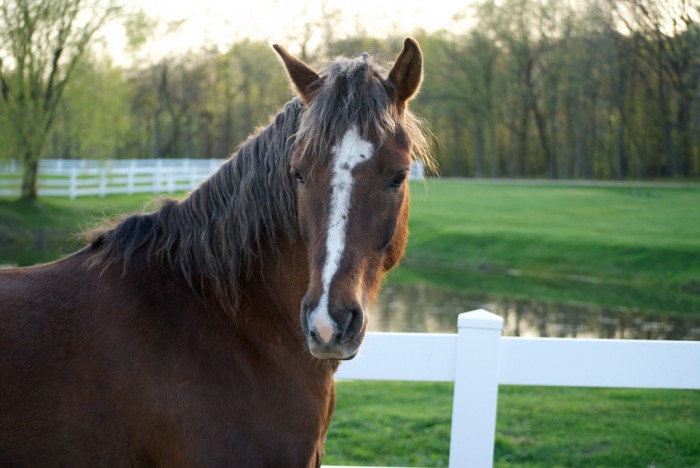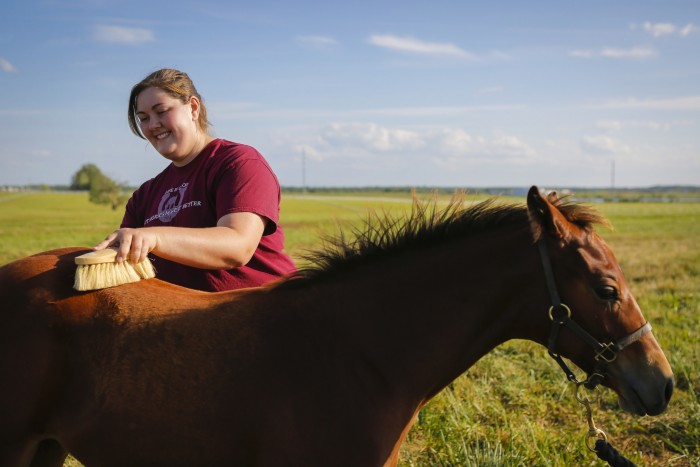
Equine Assisted Therapy is a type of experiential therapy and an alternative to traditional therapies for teens with mental illness and substance abuse issues. The goal of this therapy, according to CRC Health, is to help the teen develop needed skills and attributes, which can include:
- Assertiveness
- Emotional Awareness
- Empathy
- Stress tolerance
- Impulse control
- Problem-solving skills
- Independence
- Self-actualization
- Social responsibility
- Interpersonal relationships
Equine Assisted Therapy is becoming an increasingly recognized form of therapy that helps adolescents overcome fear and anxiety, gain confidence and build trust. The size of the horse rhythm along with the motion of riding a horse is therapeutic and gives the rider balance, coordination and confidence, according to a study conducted at Michigan State University.
 Image Pete Markham
Image Pete Markham
Horses have a unique ability to mirror human body language, thereby reflecting the riders behaviors and emotions back to them, according to Psychology Today. It is a hands-on learning experience for the rider and helps them learn more about themselves by experience, rather than just talking through issues. Because the rider is assigned a horse that they will care for and work closely with over a period of time, they develop an emotional bond with the horse. The outcome is that the principles and behaviors created from the teen’s relationship with their horse is transferred to important relationships in their personal lives.
 Image CAFNR
Image CAFNR
Teens will work with certified and credentialed equine specialists that are trained in the use of horses in therapeutic settings, along with trained therapists able to assist adolescents with substance abuse and mental health issues. Equine therapy has been used to help teens with addiction, behaviour disorders, eating disorders, mood disorders, ADHD, autism, trauma, compulsion, bipolar disorder, depression, and anxiety. If your teen has not responded to more traditional therapies, it is likely that through Equine Assisted Therapy, they will be able to better recognize and identify feelings and emotions and be on the path to recovery.
Featured image Francisco Javier Argel


